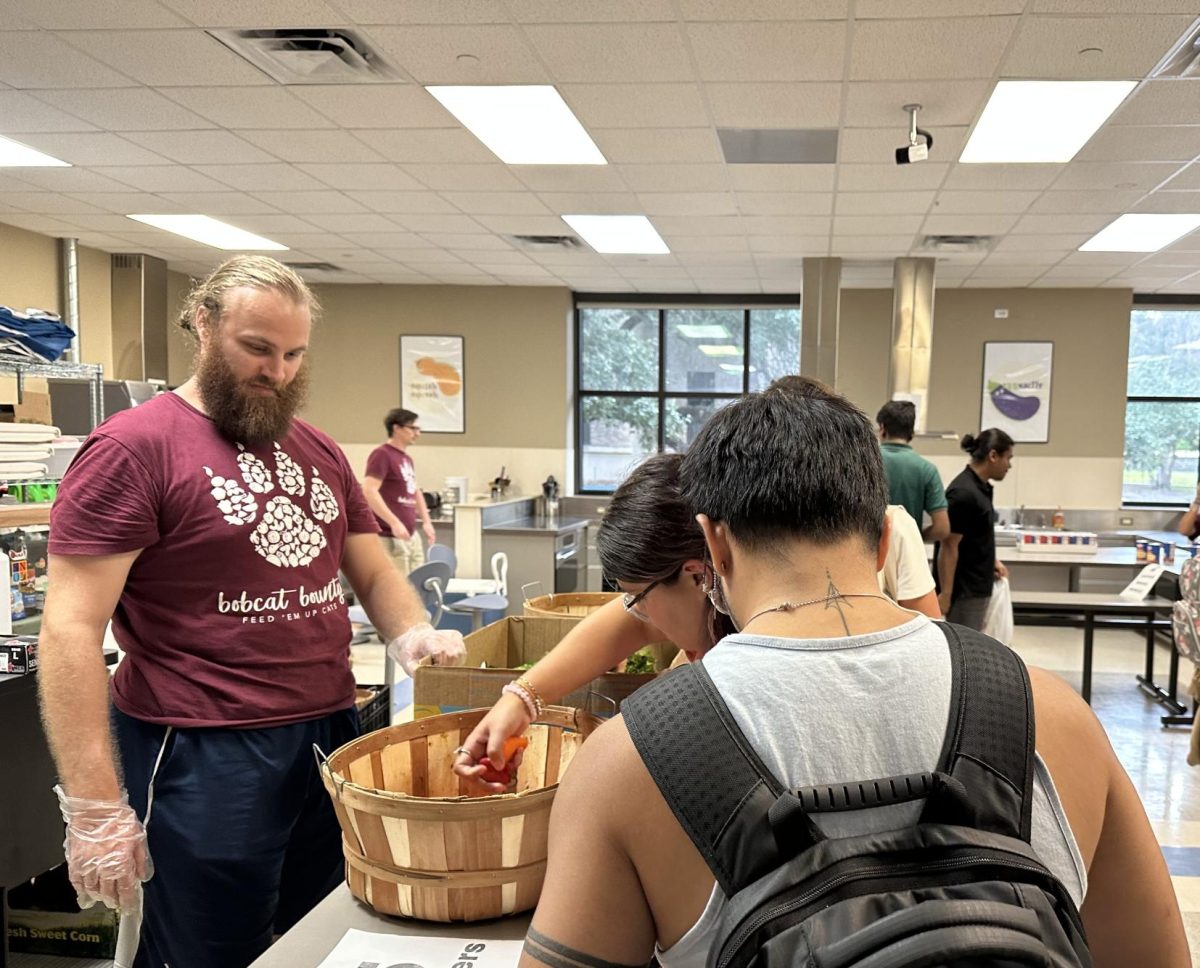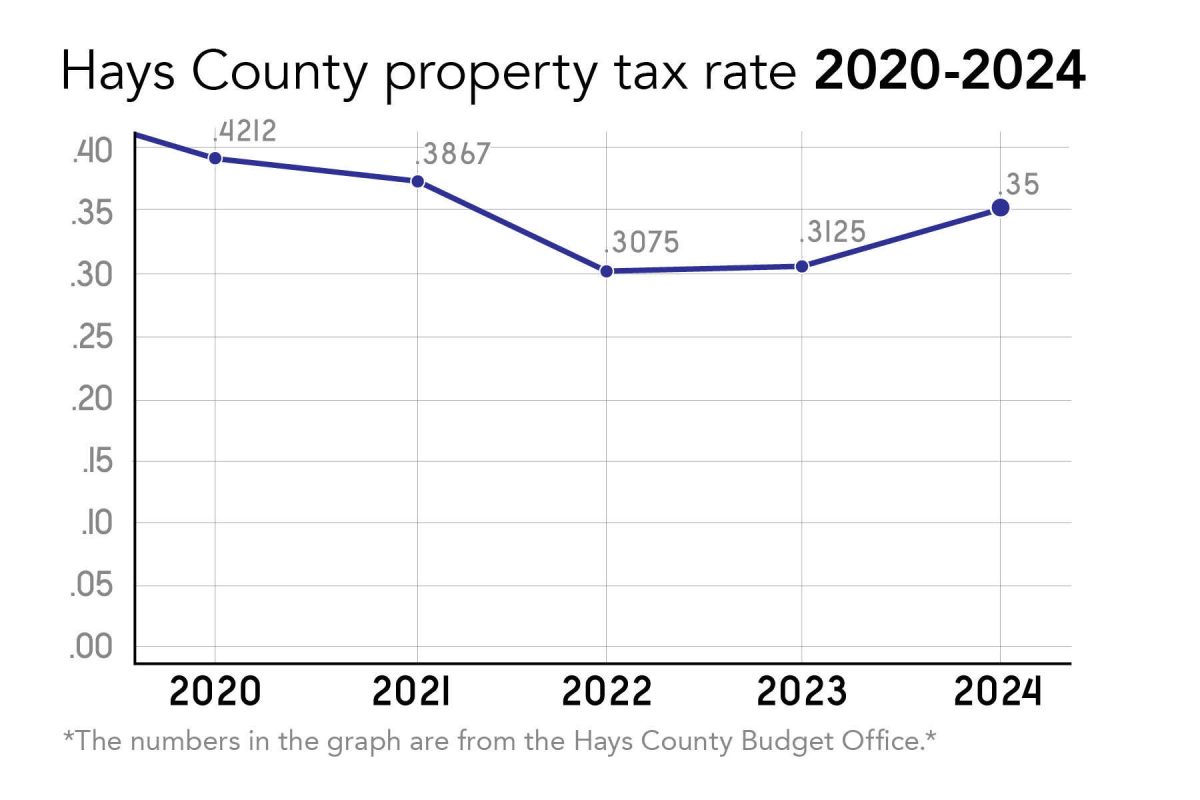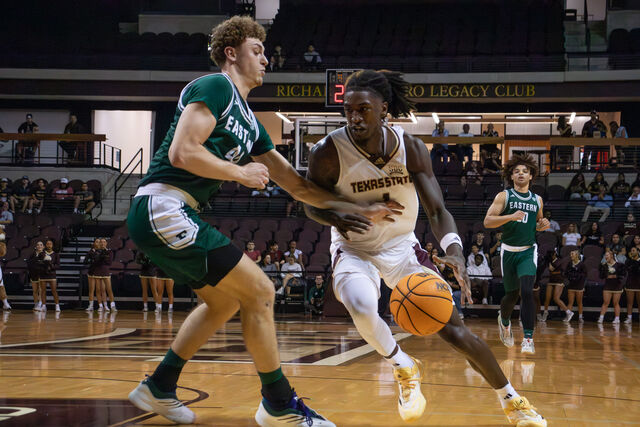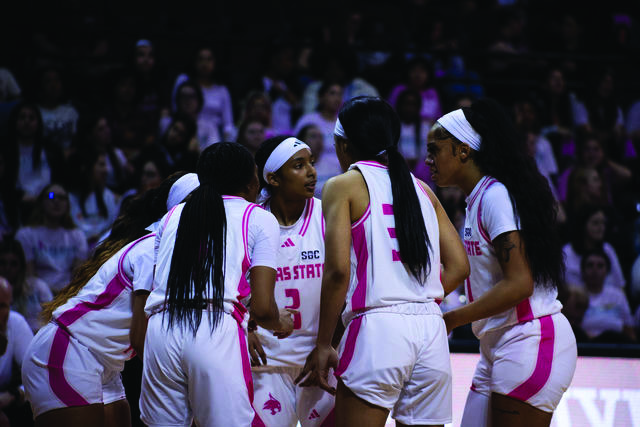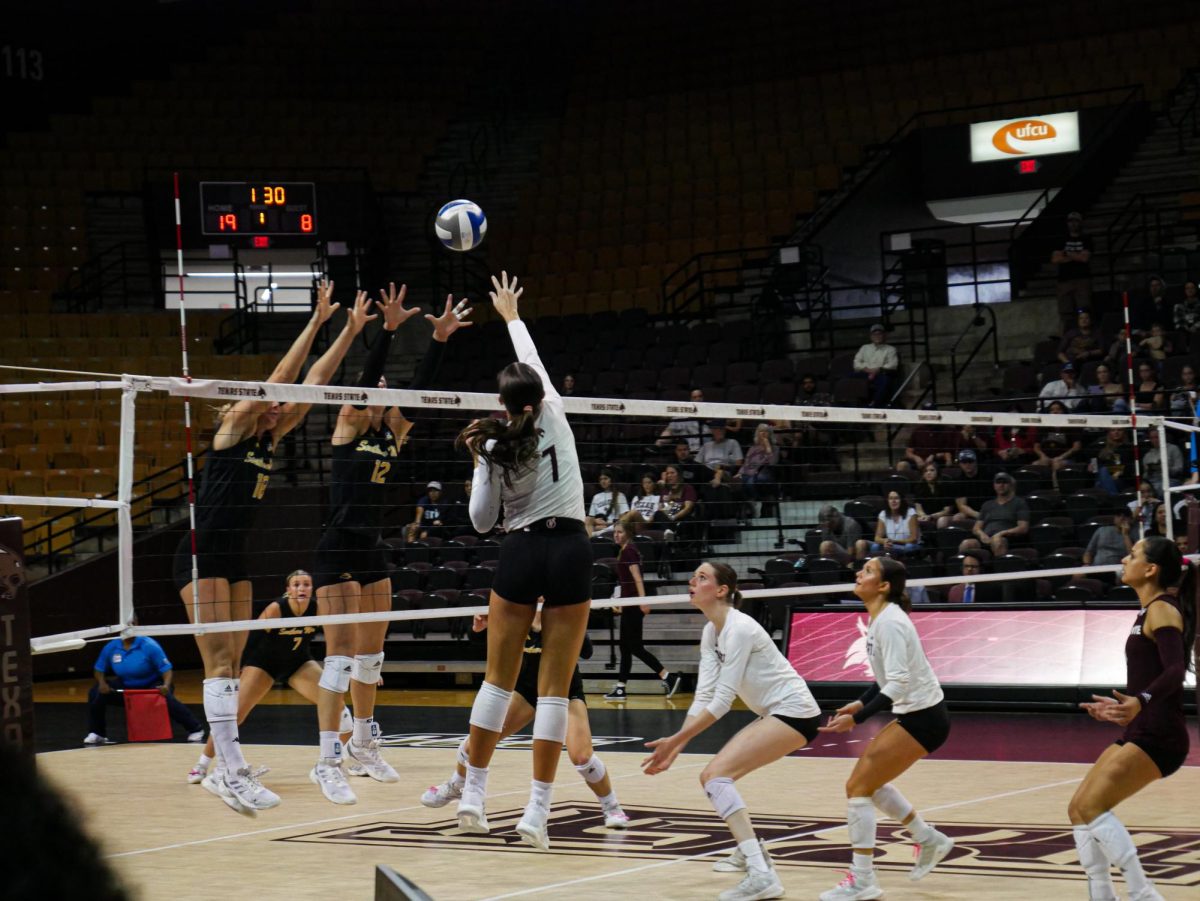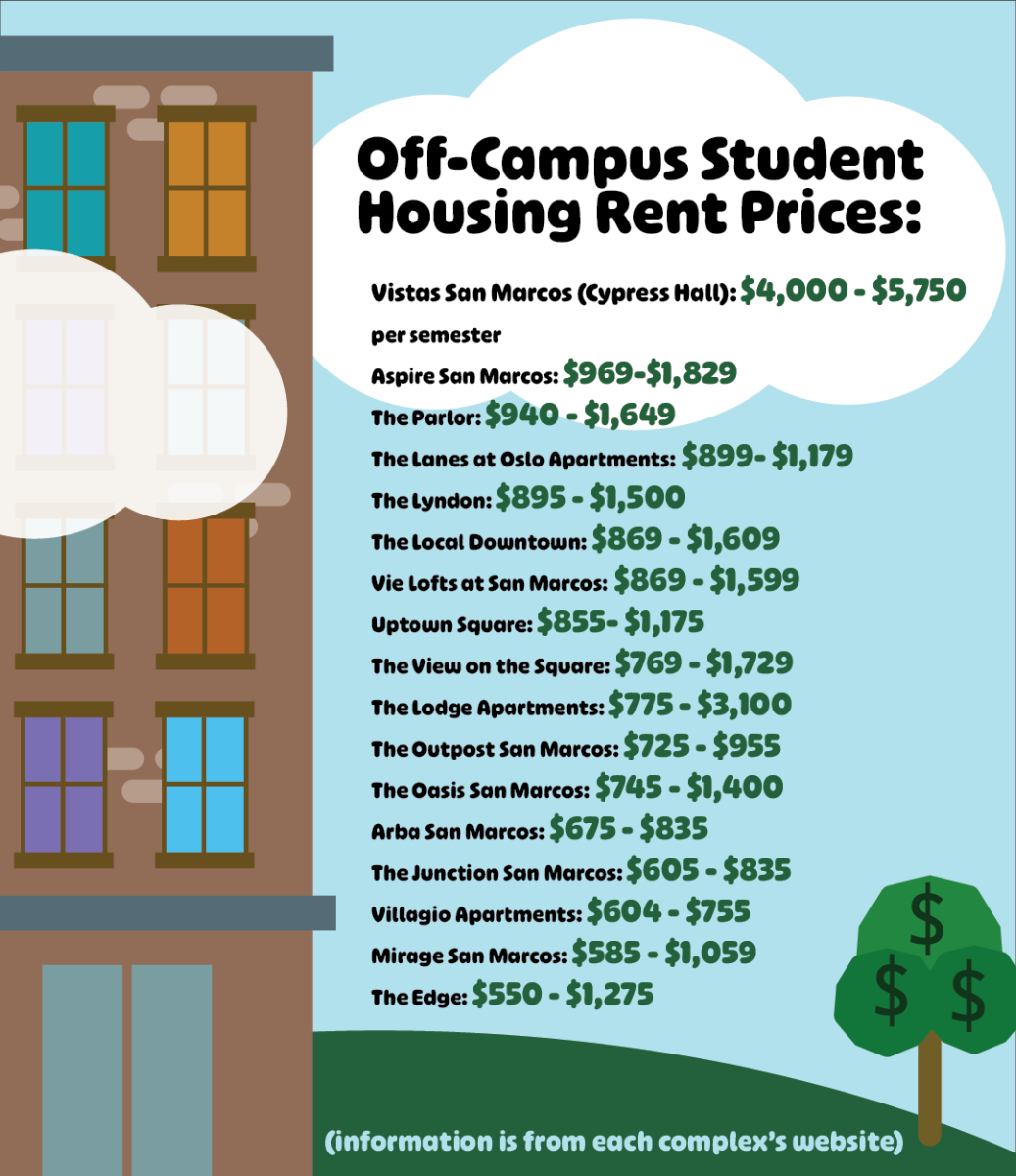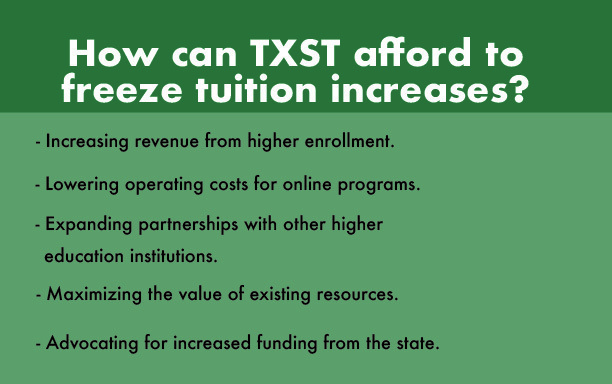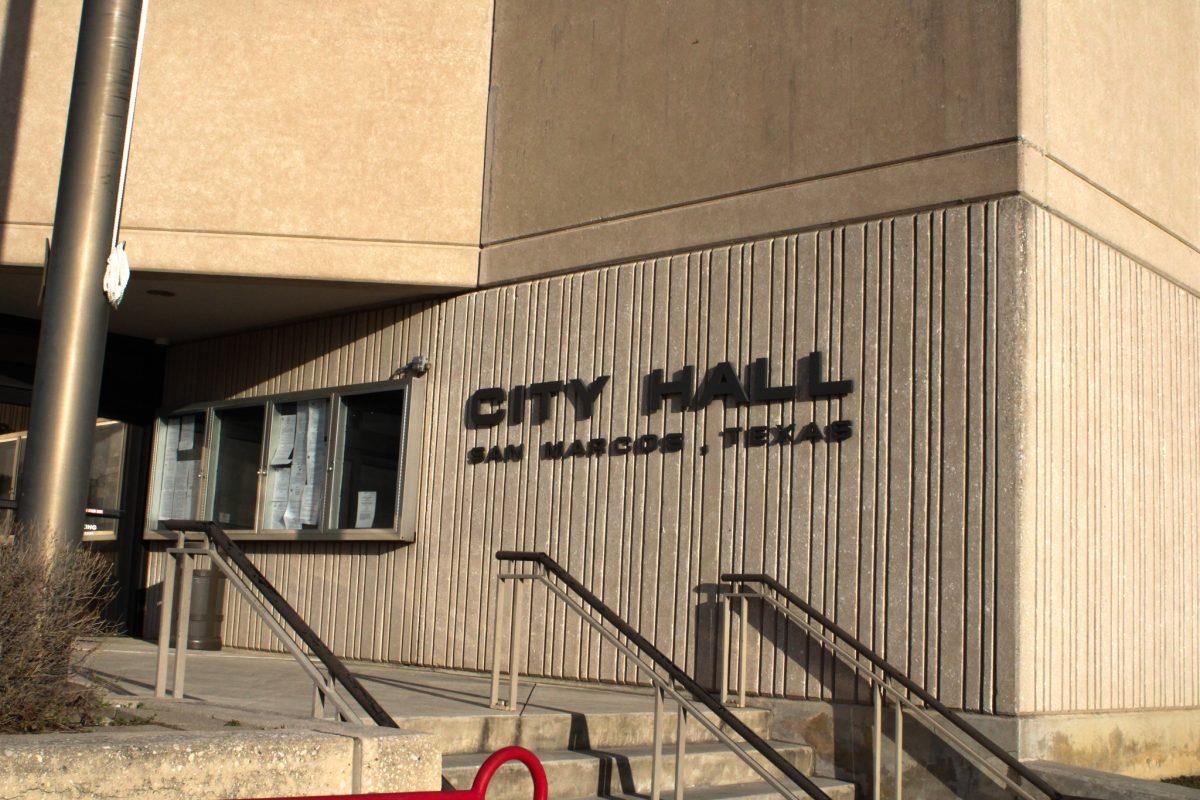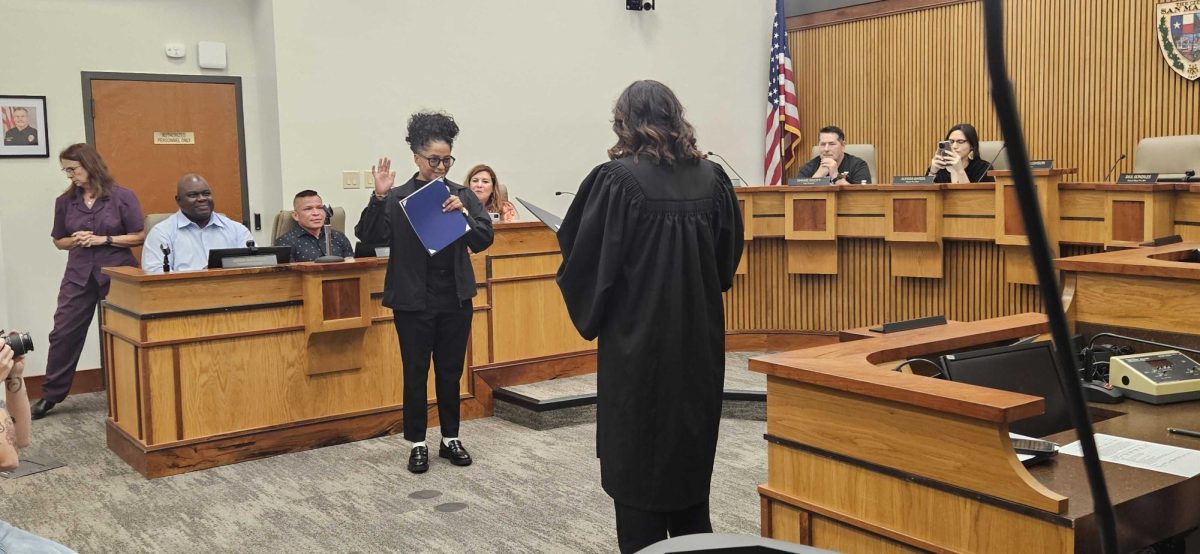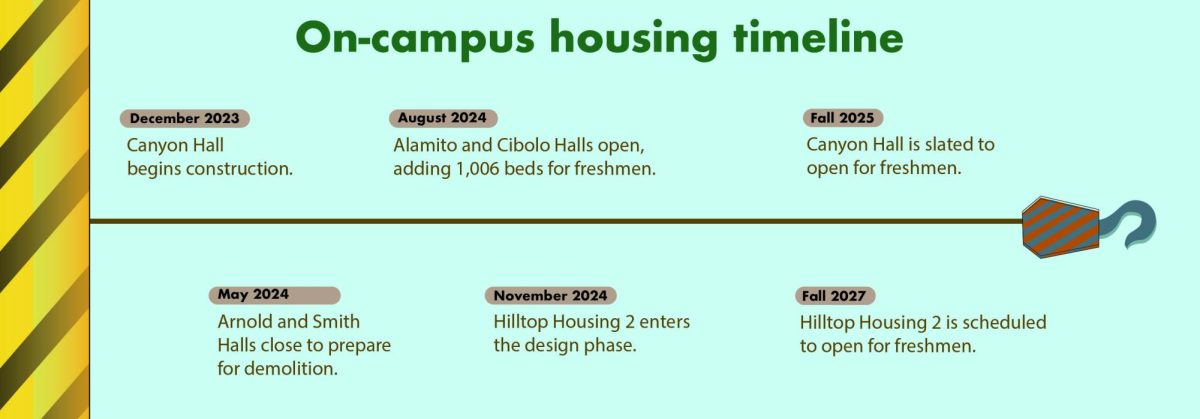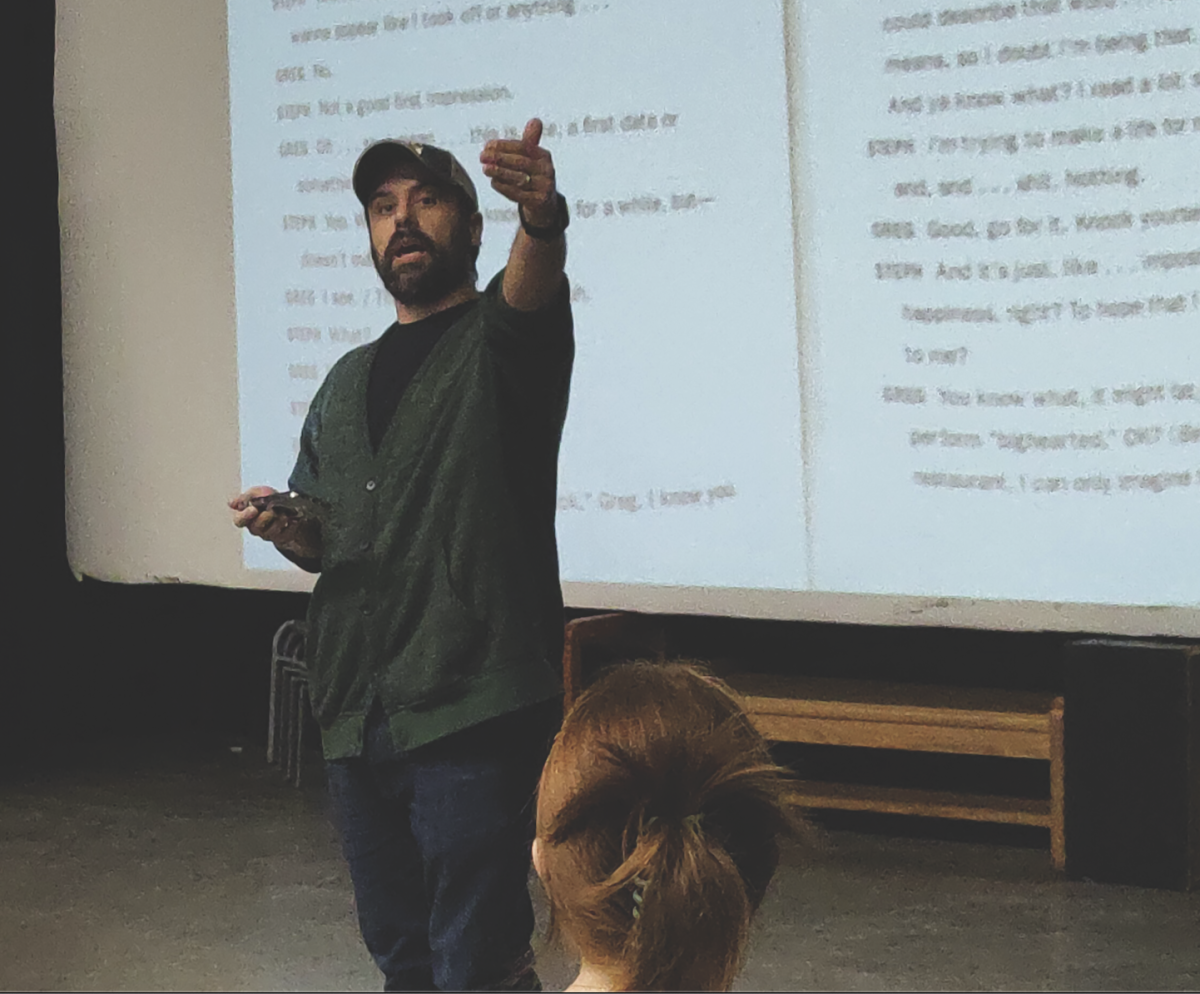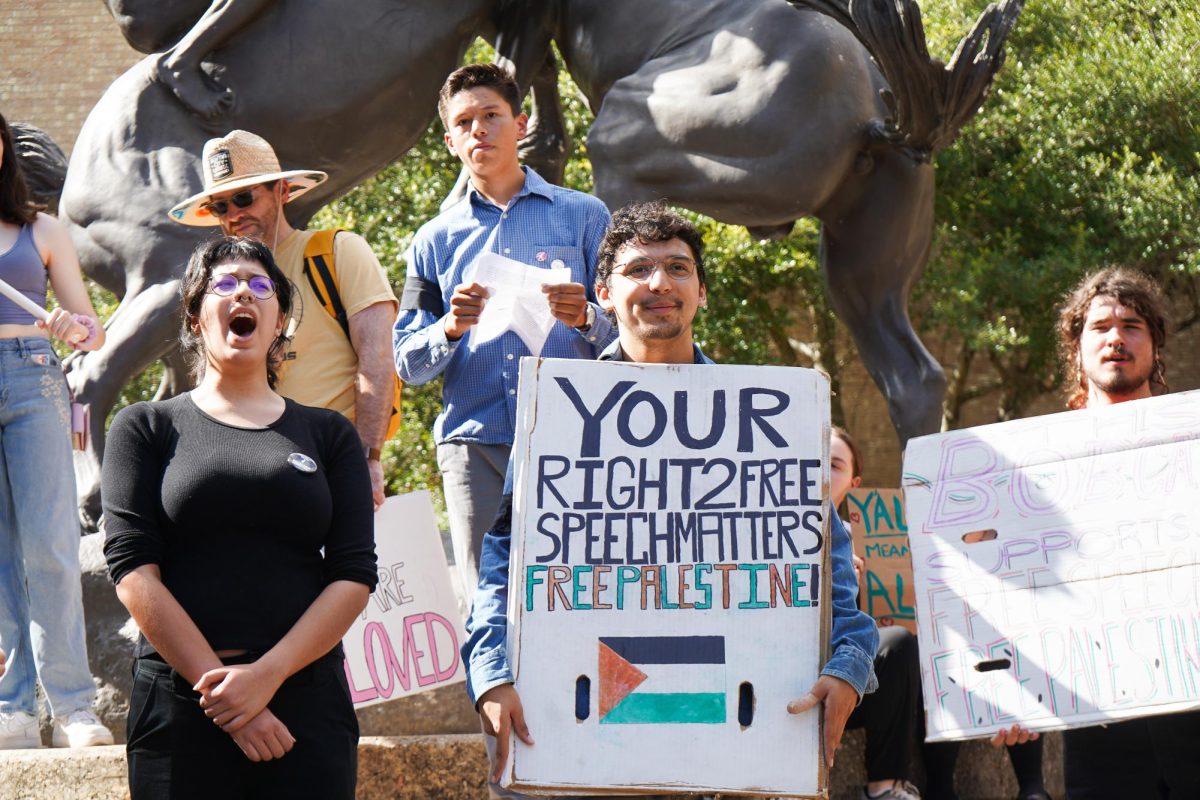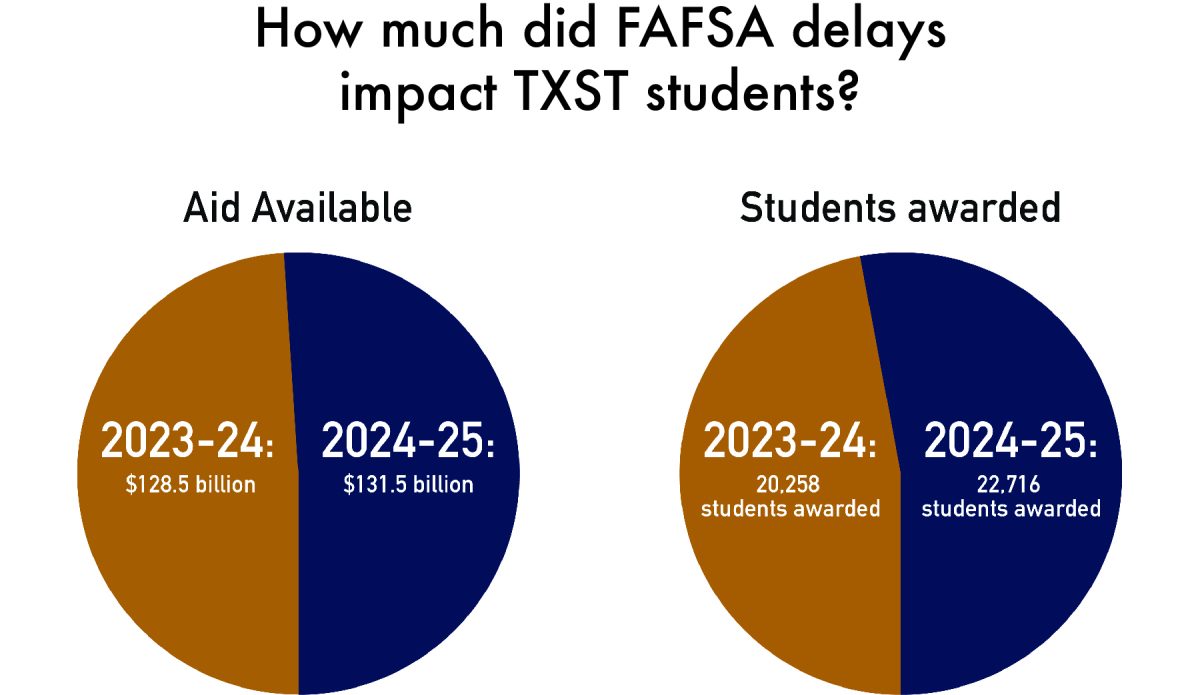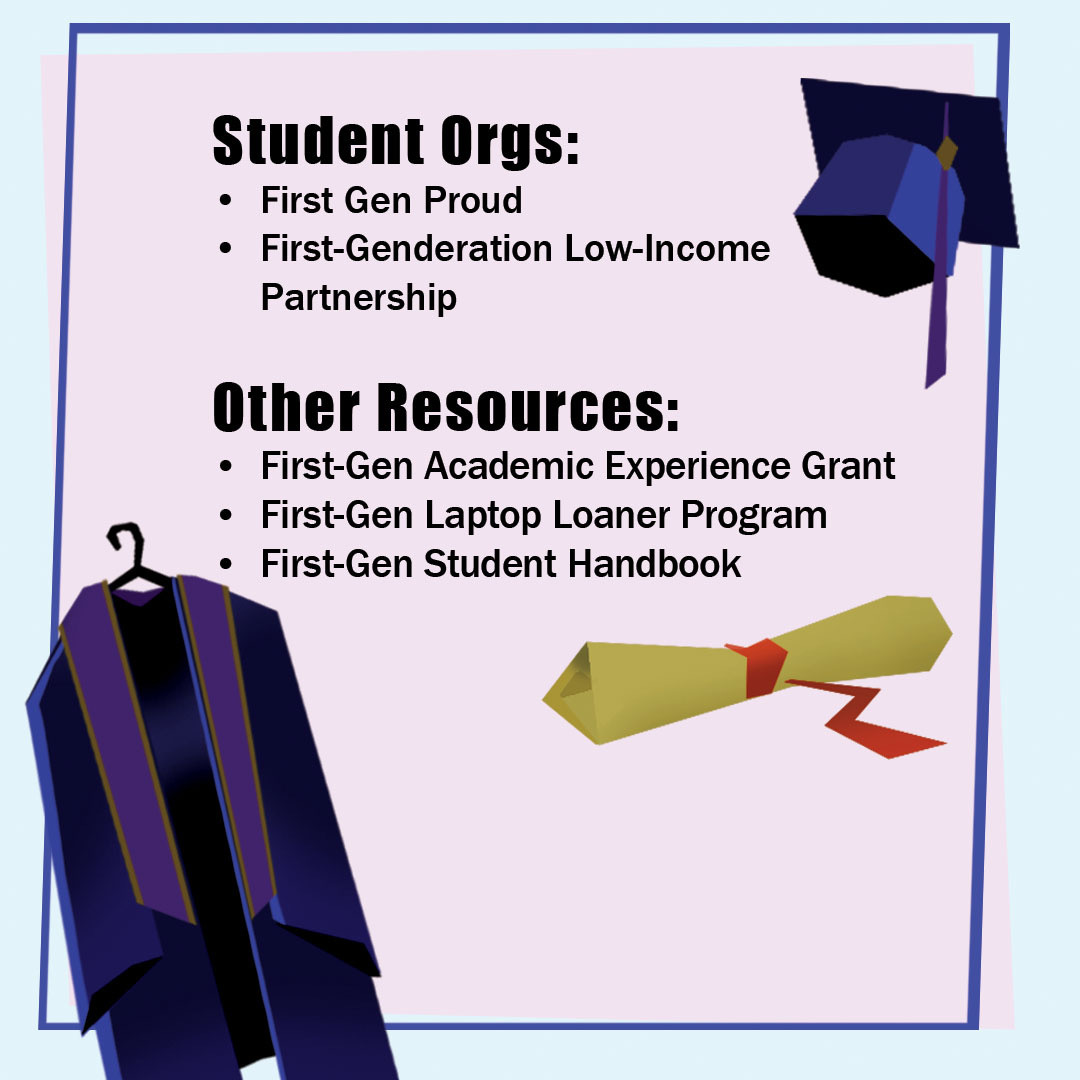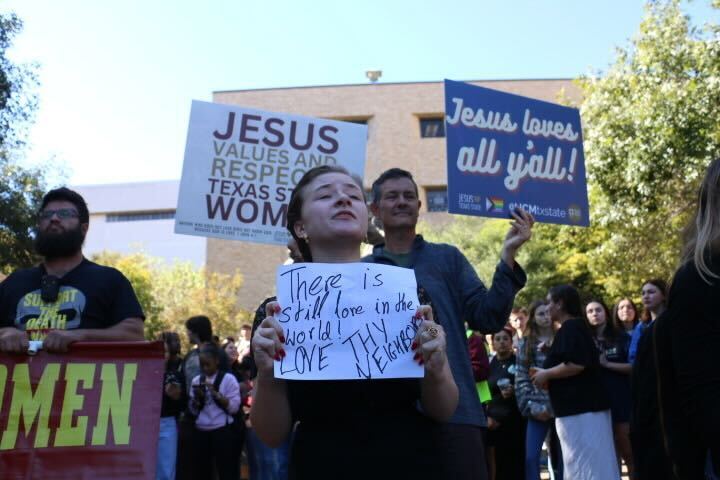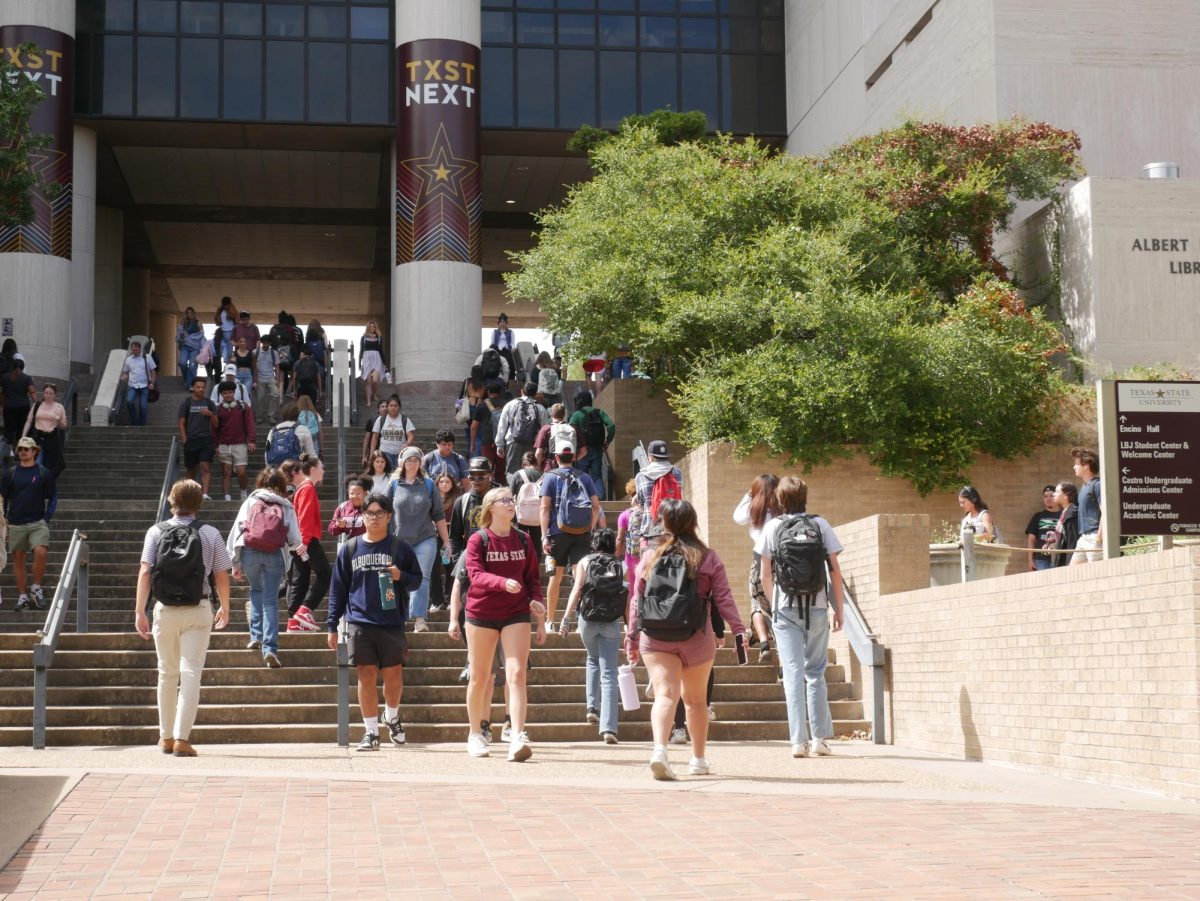The University Star used a first name for one source in this story.
Every Thursday, Keesha, a Texas State graduate student, goes to the Family and Consumer Sciences Building, to pick up some bread, vegetables and canned food from a free student-run pantry. It has become her routine since last year as most of the money she is making as a graduate assistant is going to pay rent.
‘‘I am so thankful we have this opportunity,’’ Keesha said. ‘‘Since my car broke down recently I feel like a burden every time I ask my friends to drive me to the market, not to mention I almost have no money to shop.’’
University students are one of the most affected when it comes to food insecurity, according to Dominique Alfaro, a master’s student in human nutrition. She has been volunteering with Bobcat Bounty as an intern for about a year and is now managing this grocery store-style experience as a graduate assistant.
The maximum number Bobcat Bounty served last year was around 180 people per week during a two-hour weekly pantry.
“This year, our average has been like 220. The word is going out,” said Alfaro. ‘‘To me, when I see the line getting bigger, that means there’s more people facing food insecurity.’’
Bobcat Bounty is open to not only students but community members as well. For some community members, it is the only way to get food as they might not have a car.
‘‘Students, faculty and staff should not have to worry about where their meals are coming from because they have to go about our lives,” Emma Parsley, sustainability coordinator at the Office of Sustainability, said. ‘‘Being able to provide free resources is immensely incredible. That’s the equitable opportunity that Texas State provides for its community.’’
Bobcat Bounty has recently opened four permanent shelf-stable food cupboards in Jowers, Education, Child and Development as well as Family and Consumer Sciences buildings.
However, Bobcat Bounty is experiencing staff limitations. Even though the program operates because of a grant from the university, which states the pantry itself has to be run by nutrition students, anyone can apply and help. Sometimes there aren’t enough volunteers to watch the line and people might cut in.
‘‘When the population is vulnerable, they feel like they’re not going to get enough food,’’ Alfaro said. “That way we are absolutely putting limits. So the first person in line and the last person in line can have the same exact choice of food.’’
Bobcat Bounty does not throw away any food from the pantry, meaning workers ensure that all the food is given out.
‘‘It’s that mind of the circular economy, there are perfectly good items that people are throwing away and it’s just about being able to facilitate the efforts to get them to those who need them,’’ Parsley said.
Addressing food insecurity is, however, not only about helping those in need, it also allows the diverting of resources from landfills, which, according to Parsley, are maxing out.
Among other sustainable initiatives is purchasing food items from Imperfectly Delicious Foods as well as the support of a sustainable Bobcat Farm. These and other non-food related initiatives of the University were recently recognized with Sustainability Tracking, Assessment and Rating System silver status.
‘‘It is essentially like a report card for universities to report on their sustainability practices,” Parsley said. “Back in 2019, Texas State was rated bronze, but this past year we were able to earn a silver status.’’


